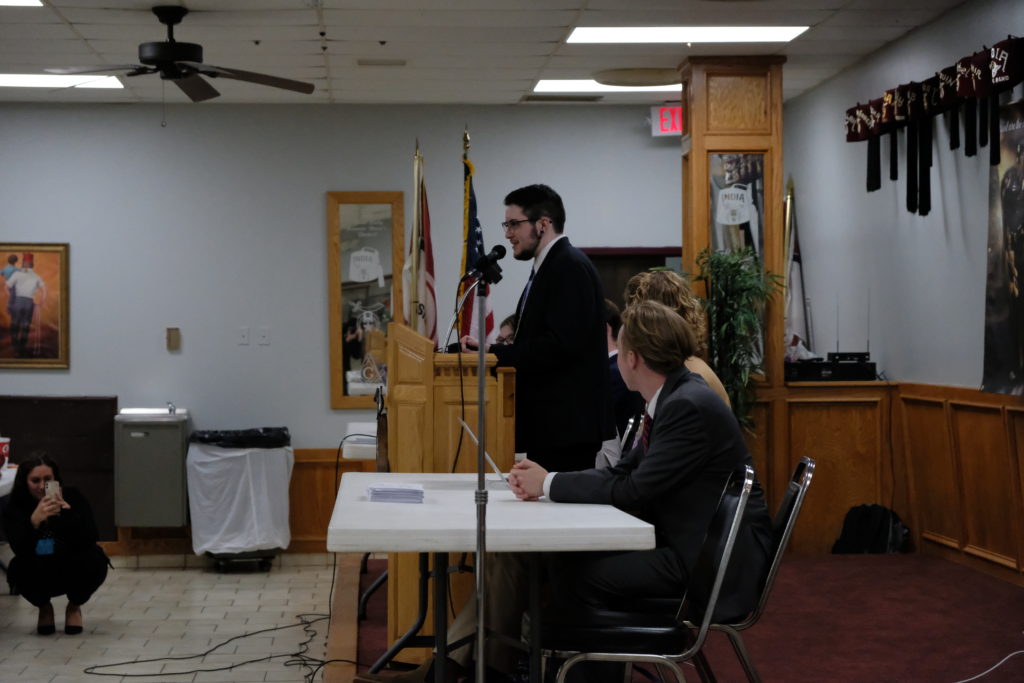Journalist Sadler (OBU)
Opinion: One Horse Race: Emmett Thompson needed competition.
Big promises. Immense qualification. Technical experience and enough stars to choke a
horse. Emmett Thompson, lone candidate for governor, gave an exceptional speech in which he
outlined a vision of a new path forward for Oklahoma’s premier collegiate legislature.
Thompson, fresh off his position as Nathan Barnett’s Chief of Staff that he served simultaneously
with his position as OIL’s resident tech expert, is unquestionably qualified for the position of
governor. But as I watched his speech and took in the thunderous applause that followed his
victory felt … hollow to me. Why?
Maybe it was a result of what preceded him. Joe Hartman, who served as OIL’s governor
from 2008-2009, gave a moving address in which he discussed his long journey from freshman
to governor. Despite losing other races, Hartman eventually won his governor’s race with a
percentage of over 70%. An overwhelming result… but it was still a hard fought victory after a
long campaign that gave OIL delegates the chance to make a choice between multiple candidates
for the most powerful position in the organization. That race and the other races of years past that
actually required candidates to campaign, build coalitions, and establish why they were the better
choice are in this reporter’s view superior to Thompson’s appointment by acclamation.
Don’t misunderstand: this is in no way, shape, or form a slight against Thompson’s
character, qualifications, or plans for the future. I personally took part in Thompson’s judiciary
hearing for his appointment as Director of Technology. I was stunned at his passion for his work
and his integrity. But I do hold the position that he was robbed of an opportunity to run a
campaign that would have likely been among the best OIL has ever seen. Part of OIL’s value is
its ability to act as a small, digestible simulation of real political maneuvers. Thompson didn’t
get the opportunity to get that experience and education, and the organization as a whole missed
out on a vital part of the political process.
Call me a pessimist, a cynic, or a killjoy. There’s even an argument to be made that OIL
is in a stage of rebuilding after COVID-19 shook the organization to its core and stopped session
for the first time ever, and that the energy of leadership is better spent planning, organizing, and
leading instead of engaging in potentially messy, distracting campaigns. But despite those
potential objections, I do hope that OIL can find a way to return to its tradition of executive
competition. After all, OIL’s alumni will be entering a world more polarized and divided than
any of us have ever seen. Maybe some experience campaigning and bringing people together
could help bring our cities, states, and country closer together in the years to come.

